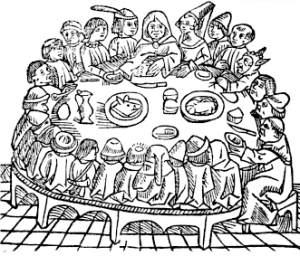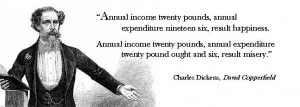
Gundestrup Cauldron, showing Celtic horned god Cernunnos with torc, Denmark, c100 BC. (Photo by CM Dixon/Print Collector/Getty Images)
It is Beltane here in the Southern Hemisphere and sometimes it is hard to see how Australians celebrate this wild time of exploding fertility and the fullness of spring, but we do. You won’t see may poles in many places (unless it is a re-enactment group), and you won’t see Beltane mentioned openly or officially, but we celebrate it. You can’t help but feel the sap rise inside you at this time of year, the urge to connect, renew and (if you still have it in you) ‘fertilise your fields’. Yes, I’m being a little coy about sex there, you’ll see why in a little bit.
Beltane is a sexy time of year. We don’t really go in for dancing naked around a fire – we’re a bit too “occupational safety” minded for that kind of thing, plus we’re touchy about setting off fires, but the partying and fertility rites are here to stay and well out in the open.
Increasingly Australians are deciding to celebrate Halloween. It can be confusing to those of us who honour the wheel of the year and downright frustrating too. However, I’ve realised that there’s a nuance that I’ve been missing. Aussies don’t have many shared rituals – as a multicultural nation of people with diverse and or largely (officially) secular backgrounds, we have a magpie habit of comfortably picking only what we like from things and using it to suit our needs. I think the reason we’re appropriating Halloween is simply because it is a well timed excuse for a dress-up party, right at that time of year when we feel like getting sexy. It is also popular because it is suitable for kids to participate, unlike our major, national event, The Melbourne Cup.
That’s right, “The race that stops a nation” is confusing as a national ritual until you realise that it a default, secular, authorised outlet for Beltane celebrations and energy. All around the country, on a single day, all the normal rules are off. You’re expected to gamble, you’re allowed/ encouraged to drink booze (even at work!), you’re expected to leave your normal inhibitions at home in a box for the day. Punters and partiers dress up and then get really drunk on enormous amounts of alcohol. They have a great time. Loads of people have fun. The horses, not so much. There’s plenty of passed out people, or staggering, puking people and (here’s why I was being coy earlier) eyewitness reports of couples ‘fertilising their fields’ on the track and in the car park by the end of the day. Of course, none of this is mandatory. Some people are able just to enjoy a special lunch. My point is not *gasp* people getting messy, it is that this is a normal working day. A Tuesday.
There is nothing special about this race compared to any of the other major race days throughout the spring carnival. Over time, it was this race that grew, that got a little momentum and here we are with something to hang our Beltane on. Don’t go in for horse racing? No worries, hook into the “Halloween” excuse for a party. Don’t like monsters? Have a BBQ, celebrate your wedding anniversary or one of your friend’s birthdays (November is so conveniently located months after the Australia Day and Valentine’s Day rituals to supply an endless number of birthdays to enjoy.
How ever you prefer it, enjoy your Beltane this weekend.


